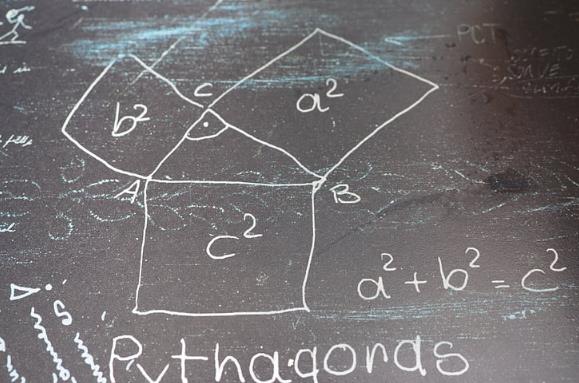
固定搭配的词组或短语
如:be used to doing sth, be used to do sth, used to do sth:
【1】“be used to doing sth ”短语中的“used”为形容词,意思使“习惯的,适应的”。后面的“to”为介词,后面接“名词,代词或者动名词(doing)作宾语”整个短语意思是“习惯于做某事”
He is used to air travel. 他习惯坐飞机旅行。
The weather here is very bad and she is not used to it.这里天气太槽糕了她不习惯。
She is not used to eating Chinese food. 她不习惯吃中餐。
He is used to living in the country now.他目前习惯了住在农村
(1):“系动词be”还可以换成“get/become”还有各种时态。
You will soon get used to the electric typewriters.你将很快习惯电动打字机。
You will soon become used to living there你将很快习惯住在那里。
You will soon become /get used to it. 你很快就可以适应的。
(2):“状态系动词be表示状语,即表示一种已经习惯的状态”“变化系动词表示动作或者过程,即由不习惯到习惯进行过渡转变。”
They soon got used to driving on the left.他们很快习惯靠左开车。(表示动作)
Tom is used to the weather in Beijing汤姆习惯了北京天气。(表示状态)
【2】“be used to do sth ”短语中的“used”为过去分词与前面的“助动词be”一起构成被动语态,意思使“被用来”。后面的“to”为“不定式符号”,后面接“动词原形(do)”整个短语的意思是“被用来做某事”
Wood is often used to make desks and chairs. 木材经常被用来制作桌椅。
Coal can be used to keep warm. 煤可以用来取暖。
【3】“used to do sth”短语中的“used to”为“情态动词”后接动词原形do,意思使“过去经常做某事,目前不做了”。”
I used to play football after school.过去我经常在放学后踢球.
People used to come and visit him every day.大家过去每天都来拜访他。
【备注(1):】否定结构有2种为“used not to do sth或者did not use to do sth”
She used not to go home by bus.她过去不常乘坐公交车回家。
She didn’t use to go home by bus.她过去不常乘坐公交车回家。
【备注(2):】疑问结构也有2种为“Used +主语+ to do sth?”或者Did +主语 +use to do sth ?”
Used she to go home by bus? 她过去常乘坐公交车回家吗?
Yes, she used to.是的,她是的(肯定回答) No,she usedn’t to不是的,她不是的 (否定回答)
Did Tom use to get up early ? 汤姆过去常早起床吗?
Yes, he did .是的,他是的(肯定回答)No,he didn’t 不是,他不是的 (否定回答
固定搭配指的是某个动词与介词或是名词与介词的固定使用.就像汉语中的词组一样
英语基础短语搭配举例子:
1. be fond of “喜爱,爱好” 接名词、代词或动词的-ing形式。
He’s fond of swimming. 他喜欢游泳。
Are you fond of fresh vegetables. 你喜欢新鲜蔬菜吗?
He is fond of his research work. 他喜爱他的研究工作。
2. hunt for = look for 找寻
I have found the book I was hunting for.我找到了那本我在找的书。
hunt for a job 找工作
3. in order to/so as to:这两个词组都可引导不定式作目标状语, in order to可放于句首, so as to则不可以, 其否定形式为in order not to / so as not to.
He went to Beijing in order / so as to attend an important meeting.
In order to be noticed, he shouted and waved to us.为了让我们注意他, 他朝我们又是叫喊又是挥手。
4. care about
1) 喜欢,对……有兴趣 = care for
She doesn’t care about money.她不喜欢钱。
2)关心 = care for
She thinks only of herself. She doesn’t care about other people.她只考虑自己。她不关心别人。
3)在乎,在意(接从句或不接任何成分)
These young people care nothing about what old people might say.
这些年轻人根本不在乎老人说,。
5. such as 意为“诸如……”,“像……”是用来列举人或事物的。
She teaches three subjects, such as physics and chemistry.她教三门科目,像物理、化学。
6. drop a line 留下便条, 写封短信
7. make yourself at home 别客气;随便;无拘束
If you get to my house before I do, help yourself to a drink and make yourself at home.假设你在我以前到我家,自己喝点饮料,随便一点。
8. stay up 不睡;熬夜
(1) Ill be late home, dont stay up for me.
我将回家很晚,不要等我了。
(2) He stayed up reading until 2:00 in the morning.
他熬夜看书直到凌晨两点。
9. come about 导致;出现;出现
(1)How did the accident come about?
这场事故是咋出现的?
(2) They didnt know how the change had come about.
他们不清楚这个变化是什么样出现的。
10. except for 除……之外
(1) except 与 except for 的用法时常伴有区别。except 多用于导致同一类型事物中被排除的一项。如:
(1)He answered all the questions except the last one.
除去后一个,他回答了全部问题。
(2)We go there every day except Sunday.
除了星期天,我们天天去那里。
(2)except for 用于引述细节以修正句子的主要意思。如:
(1)Except for one old lady, the bus was empty.
除去一个老太太,这辆公共汽车全空了。
(2)Your picture is good except for the colours.
你的画儿很好,只是某些色彩有问题。
(3)但是在现代英语中,except for也用于表示except的意思。如上面说的第一个例子可以是:
He answered all the questions except for the last one.
(4) 此外在介词短语以前只可以用except,不可以用except for。
We go to bed before ten, except in the summer.
除了夏季,我们一般十点以前上床睡觉。
11. end up with 以……告终;以……结束
The party ended up with an English song.聚会以一首英文歌结束。
12. more or less 基本上;差很少;大概;大约;大体上
(1) Ive more or less succeeded, but they havent.
我差很少成功了,而他们没有。
(2) Our living condition has more or less improved.
我们的生活水平多多少少提升了。
13. bring in 引进;吸引到;吸收
(1) We should bring in new technology.
我们应该引进新技术。
(2) He brings in 800 dollars a month.
他30天挣八百美元。
14. get away(from) 逃离
(1)The thieves got away from the shop with all our money.
小偷带着我们全部的钱从商店逃跑了。
(2)I caught a really big fish but it got away.
我钓到了一条好大的鱼,可是它逃掉了
angry
(1)be angry at指对某人的言行生气。如:
He was angry at her answer.
(2)be angry with指对某人生气,其后跟表示人的名词或代词。如:
She is angry with me.
at的用法主要有动词+ at,at表示“指向期望的目标,到达某地”;be +形容词/过去分词+ at,at表示“情绪、情感的因素,或对某物具有某种感情”;at+名词构成的词组等。
with的.用法:表示方法、手段或工具等、表示人或物的特点、表示工具、手段、与某些抽象名词连耗费时长,其作用基本上等同于一个副词、表因素或理由、表想法、信念、态度。
1,与at 连用的动词:
amusedat/by对...感到有趣;arriveat/in到达;astonish(ed)at/by感到惊愕;exclaimat惊叫;glanceat看一眼;guess at 猜测;knockat敲;lookat看;pointat/to指向;shock(ed)at/by感到震惊;stareat盯着…看;surprise(d)at/by感到惊讶;wonderat/about感到惊异;work at/on 钻研
at用于表达感情的一部分词后面,经常会用到被动语态
如:
He was astonished at what he found.
Dan was both surprised and amused at the news.
2,与with连用的动词:
agree with 同意;begin with 以….启动;communicate with 与….联络;finish with 完成;comparewith/to与….比较;competewith/against同.….竞争; comply with 同意;confuse with误作;contrastwith/to形成对照;copewith对付;correspond with 与…完全一样;disgust(ed)with使.…讨厌;help with/in帮;interfere with/in干扰;mixwith混合;occupy(ied)with从事于;part with 放弃;please(d)with 对...满意;quarrel with/about争论;reason with 规劝;satisfy(fied)with/by感到满足;threaten(ed)with威胁
如:
Im pleased with this room.
Sam used to mix with those people. Well begin with the exercises.


以上就是本文英语中搭配用法是什么意思,英语搭配用法是什么意思啊的全部内容
本文链接:https://www.china-share.com/xueli/202306061543264.html
发布于:华宇考试网(https://www.china-share.com/)>>> 三年级英语上册栏目(https://www.china-share.com/xiaoxuesannian/yingyusc/)
投稿人:网友投稿
说明:因政策和内容的变化,上文内容可供参考,终以官方公告内容为准!
声明:该文观点仅代表作者本人,华宇考试网系信息发布平台,仅提供信息存储空间服务。对内容有建议或侵权投诉请联系邮箱:e8548113@foxmail.com
关注本站了解更多关于文英语中搭配用法是什么意思,英语搭配用法是什么意思啊和三年级英语上册的相关信息。
英语中搭配用法是什么意思? 固定搭配的词组或短语 如:be used to doing sth, be used to do sth, used to do sth: 【1】“be used to doing sth ”短语中的“used”为形容词,意思使“习惯的,适应的”。后面的“to”为介词,后面接“名词,代词或者...
2023-06-06
讲解景点的英语句子? This 景点 is situated in 地址位置,established in 年份,by 谁, who was 干嘛的. The significance of this 景点, is that it is the most 形容词 of 干吗用的.☆ The old tower has a long history of 2023 years. 古塔有两千年的历史。 Egypt is an...
2023-06-06
没问题的英文怎么写? noproblem [词典] 不麻烦;没什么;没事儿;很容易; [例句] Iftheydon'twanttospeaktome,fine.Noproblem. 假设他们不想和我讲话,好的。我不介意。 没问题英文中文谐音? nou 普绕不勒木 没问题的英语是no problem 大约的谐音可...
2023-06-06
记录的英文?record是名词?记录的英文? record[ri'kɔ:d;'rekɔ:d]vt. 1.记录;记载:例句:ItisabookthatrecordsthefalloftheThirdReich.它是一本记载第三帝国衰亡的书。 2.(仪器、仪表等)自动记录下;指示:例句:Thecardiographrecordstheheartbeat.心电图仪能...
2023-06-06
北京大学英语专业就业前景? 我觉得应该就业前景很的好的,第一,不管是哪个专业,只要是北大毕业就肯定是有很好的就业前景,其次英语专业在现在来说应该还是比较受欢迎的,可就业的岗位也很的多。 但假设只是本科毕业...
2023-06-05